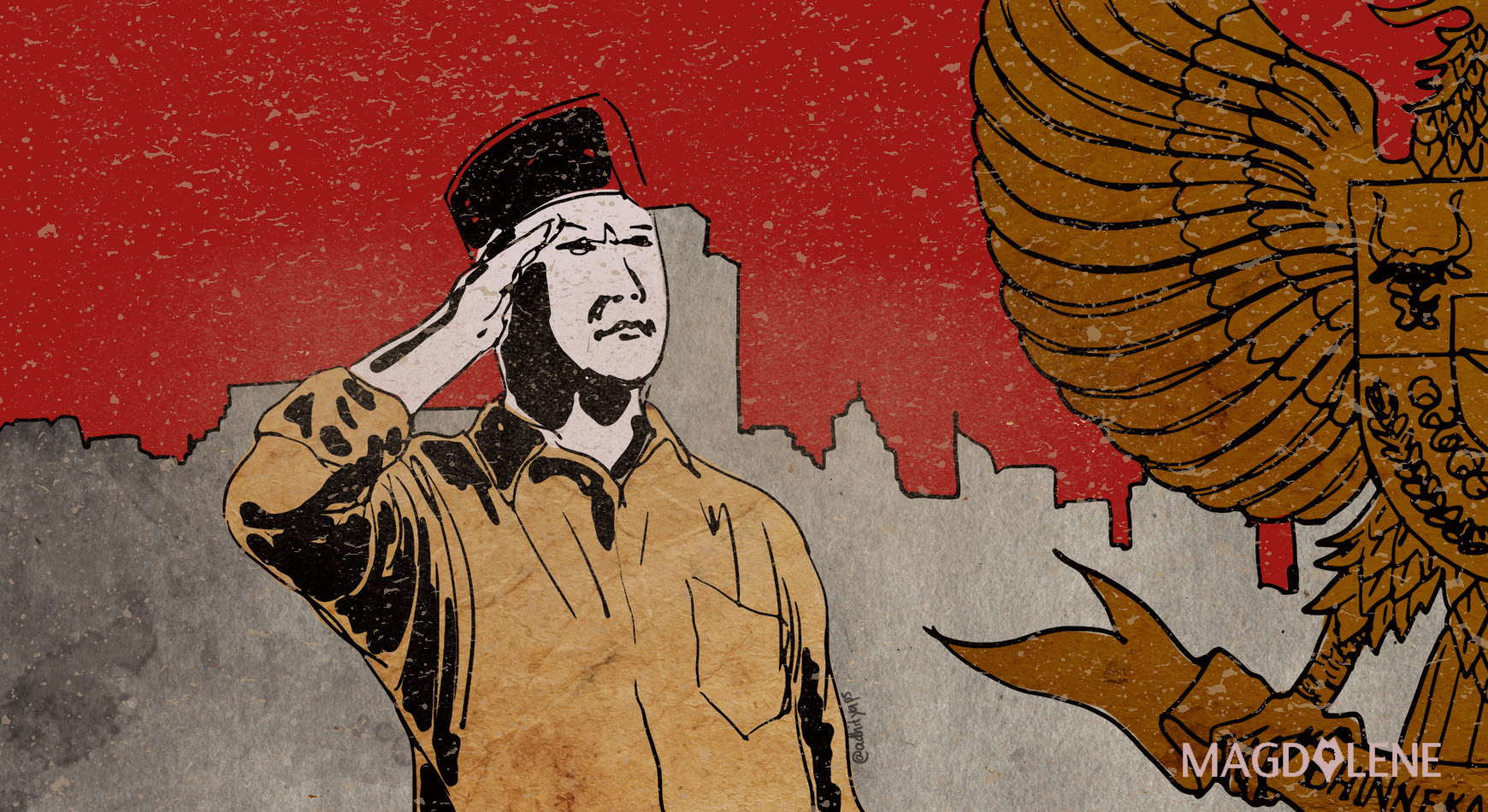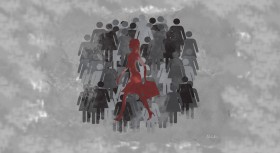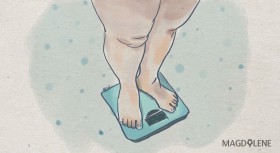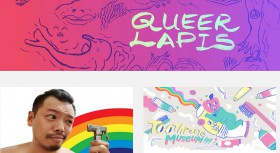As per the usual habit of social media devotees anywhere – but perhaps especially in our home turf – my Facebook timeline was flooded with all sorts of musings, pleasantries and think pieces come August 17 as Indonesia celebrated its annual independence day. In erstwhile years, I might have been tempted to post my own musings or pleasantries (or a selection of songs that might have correlated with the “spirit of independence”), but this particular year, armed with my burgeoning involvement in causes and movements and deeper understanding that freedom is not what it’s cracked up to be, I refrained from making any commentaries altogether and decided that it would be best come up with my own think piece instead.
However, this think piece is not aimed at hovering over the ad-nauseam diatribes on how Indonesia is actually not yet independent or free from oppression, fundamentalism and long-lingering shame and inferiority complex. Rather, it is aimed at celebrating the fact that while real, true blue independence for all may still be up in the air, we’ve been living and breathing interdependence along the way.
I often ponder on what it means to be a queer, non-religious person of the millennial generation coming from a middle class background in Indonesia, and how these identifiers have shaped the meaning in question. Suffice to say, I would have absolutely experienced being an Indonesian and living in Indonesia in a vastly different way had I been heterosexual, religious, of any other previous generations and an upper (or lower) class of society. Even within these identifiers, there are still so many nuances and subtexts that would have presented issues in one way or another.
So what does this mean? This means that while it’s true that every single individual has their own set of issues, the permutations of relations between these individuals yield other issues that subjugate certain individuals (and therefore groups of people) in the socio-cultural context.
Growing up, I often dreamed about leaving. Despite being raised as a Muslim, I was sent to Catholic schools virtually all my life and, as such, became a Catholic by association. I may have decided to comply and make do the best that I could with the rigid, buttoned-up dynamics of Catholic education and commingling, but, coupled with the constant pointing out (and the resulting realization) that I was “not like the other boys”, made me very confused, very lonely and very unhappy.
My go-to mantra was, “There’s got to be more to life than this”, and being exposed to American pop culture from an early age served as an immediate, inspiriting and interminable refuge. I became obsessed with the idea of living the typical suburban teenage life as seen on TV shows like Lizzie McGuire or That’s So Raven, and would repeatedly communicate this desire under the guise of “studying abroad” to my family. But given our middle class background and my mother’s unrelenting unwillingness to “send [my] child off to some unknown land”, it never did materialize. Even when I scaled down my obsession to Australia, the answer was always a resounding “No way! We don’t have enough money for that.”
I had a very simple reason: I wanted to start over. A new beginning. A blank page. A clean slate. Even as an adolescent, I recognized the need to be free from the constraints of my own background and environment that felt as if they were stifling my development. I dreamt about doing all these big, wondrous, artistic things in some far-away land, where all the exciting, envelope-pushing, civilization-making white people are. I dreamed about being a part of that world – heck, I knew I was good enough to be part of that world. Maybe I would have my own cliques like Lizzie and Raven too, as well as all the cool, edgy family and boy problems as depicted in all those teen flicks. I would spend hours on end browsing for schools, and I would call up embassies to find out the procedures for student visa. I specifically remember, as a 15-year-old, calling the Canadian embassy inquiring their immigration regulations because “I just want to go there and not come back here.”
Suffice to say, it was a long ride to escape the pipe dream.
I never did get to start over the way I had always envisioned it to be. Instead, I was, in a way, made to cope with the life situation that was presented to me the best way that I could. Little by little, my defences began to whittle down and I learned to compromise and relax upon my own rules. I began to properly appreciate Indonesian music – previously a subject of my dismissal upon the premise that it must always be inferior to “Western music” – or, alternately and ironically, listen to bad, schmaltzy local pop songs.
Interestingly, it was around this period of time that I began to acquire a circle of friends with whom I found the level of understanding I had long yearned for. We shared each other’s quirks and understood each other’s struggles as we were striving to make our way in the world. I would bring out pieces of ethnic, “feminine” cloths I had stolen from my mother’s or sister’s wardrobe and put them on whenever I was hanging out with these friends at their homes and nobody would bat an eyelid, let alone raise their dissent. They took me for who I was and I felt accepted. I went to my prom night wearing a poncho-like top emblazoned with African tribal motives and a pair of leggings. I won Best Dressed.
And it is more or less a similar spirit that I encounter in my current circles of friends: the fellow queers, the journalists, the musicians, the poets, the activists and everyone else in between. It is these people that ensure that my freedom to exist as an Indonesian person with all the aforementioned identifiers is granted. In a place where one could be persecuted for being gay, non-believing or allegedly supporting the left-wing movement, I have found and nestled in these pockets of camaraderie where I would not only be accepted and understood, but also accept and understand the other people that inhabit them.
It is these people that enable my development to not only take place, but flourish. And collectively, in our interdependence, we ensure each other’s freedom and independence. And goddammit, if it doesn’t feel real – flaws and all in our day-to-day living, in the larger scheme of things. Bit by bit, in our own small ways, we help make things just a little better for each other. In the end, I’m not too preoccupied with the idea of leaving; in fact, I’m inching ever closer to sticking around a little longer.
However, rest assured that this does not out equate resignation to complacency. As I go forward, I have this Ani DiFranco’s poem lodged up ardently in the corner of my mind, the closing lines in particular:
“But I love this city / This state / This country / Is too large / And whoever's in charge up there / Had better take the elevator down / And put more than change in our cup / Or else we / Are coming up.”
Fajar Zakhri is a music lover, pop culture connoisseur, intense feeler, deep thinker and queer whatever. A Jakarta native since birth, he works as a linguistic consultant and is also on his way to rockstardom.








Comments